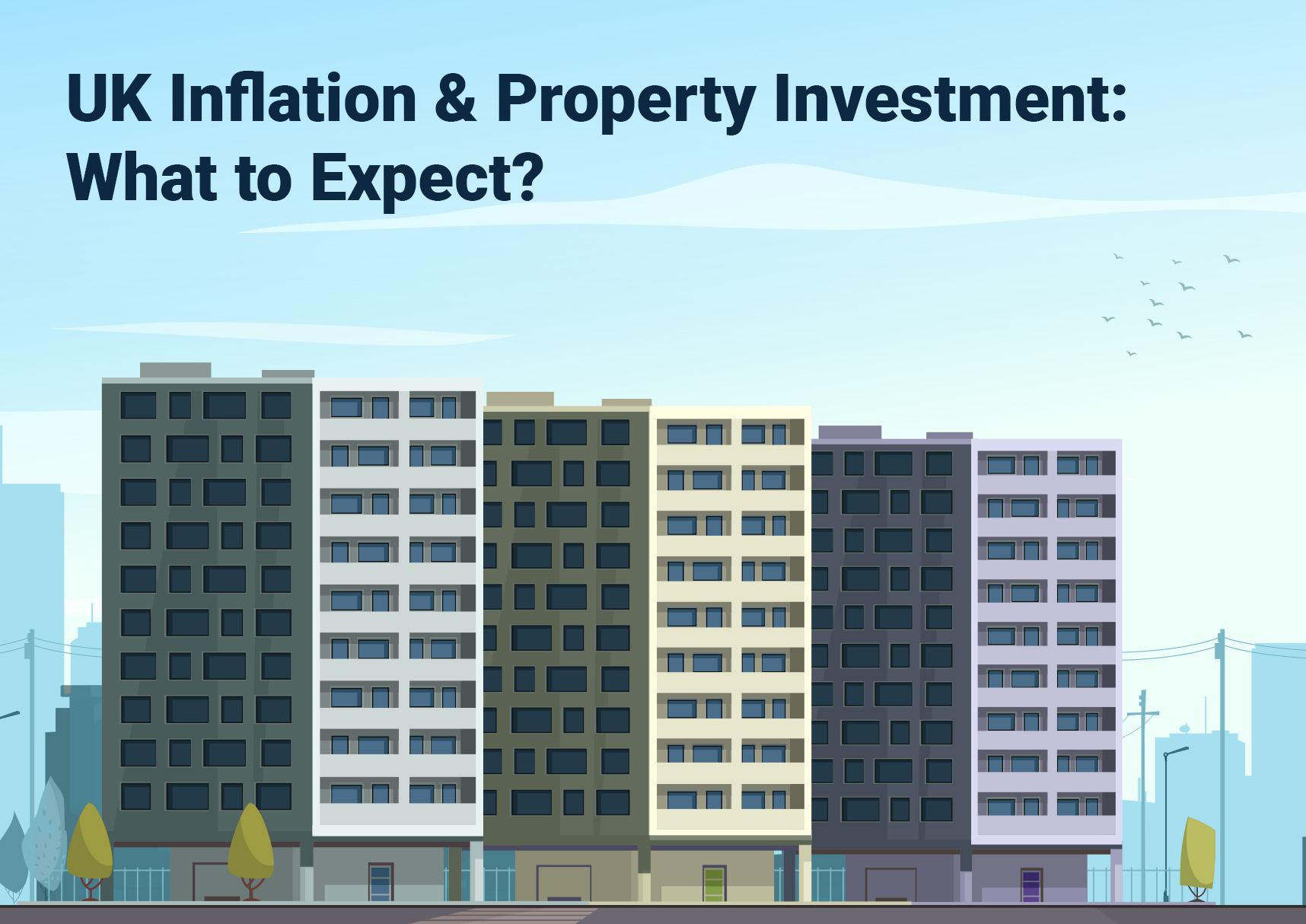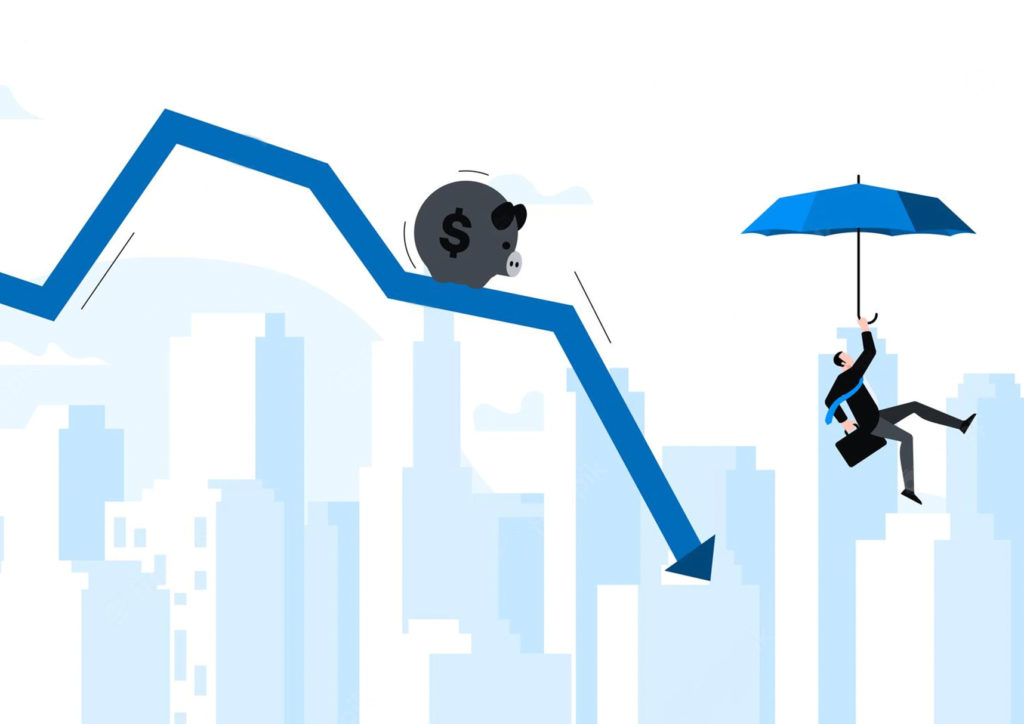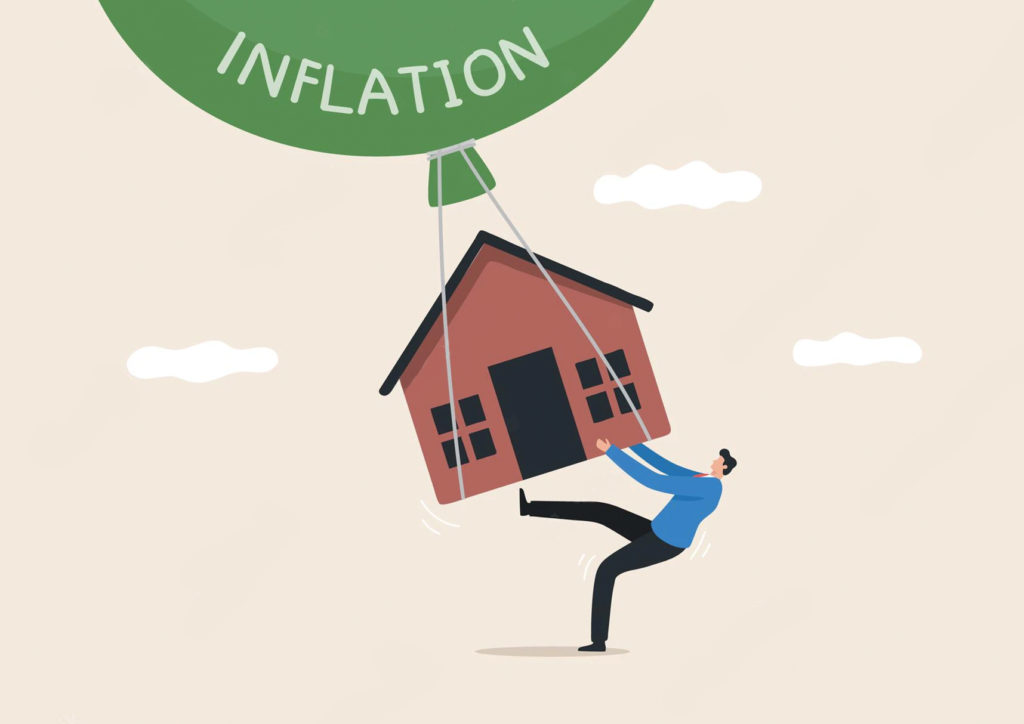UK Inflation & Property Investment: What to Expect?

UK inflation is a topic on everyone’s lips at the moment. The annual inflation rate in the UK increased 10.1% in July 2022. As the cost of living goes up, this can have property investors questioning if now is a good time to expand or begin their portfolios.
While inflation can impact the profitability of properties and investors are not immune to worries about inflation, property investment is one of the safest places to invest during a period of inflation. The UK housing market is known for its stability and in contrast to other investment avenues like stocks or cryptocurrency, property remains a relatively safe investment.
In this article we take a look at the impact of UK inflation on the property market, and what investors can expect with rising inflation.
Why is the UK Experiencing Inflation?
Higher energy prices are one of the reasons the inflation rate in the UK is so high, driven by Russia’s invasion of Ukraine. The Covid pandemic also saw more people buying goods, but suppliers having difficulty getting enough of them to sell, which leads to higher prices.
Businesses are charging more for products due to facing higher costs, and because there are not enough people to fill job vacancies, employers are having to offer higher wages to attract talent which pushes up the price of goods and services – all factors which lead to inflation.
Is Property a Good Investment in High Inflation?
UK inflation at the level we are currently experiencing can have an impact on the immediate profitability of a property investment. However, the majority of property investors will take a long-term view on their investment property, looking instead at the future.
Brick-and-mortar investments remain one of the most impressive assets and a way to hedge against inflation. Investment in property trends to remain even if mortgage rates threaten to rise or against a hot housing market and low supply of houses.
 What Happens to Property when Inflation Goes Up?
What Happens to Property when Inflation Goes Up?
Rising inflation means that the costs of goods and services are likely to increase in the coming months and years. Although inflation is based on consumer prices and housing is more related to demographic trends, construction and supply, in the long term, house prices vs inflation in the UK tends to move in the same direction due to interest rates, wages and the cost of living.
To combat the effects of inflation, banks raise interest rates, which means increasing mortgage costs. Recent years have seen an extended period of extremely low interest rates, and going forward we are seeing rising mortgage costs across the UK.
While rising inflation also impacts the affordability of mortgage payments, when inflation is high, it’s important to consider the impact of higher living costs and ensure that there is surplus income to cover rising food, travel and energy costs.
How Will UK Inflation Affect the Rental Market?
In the UK, rental demand currently outstrips supply of housing and with changing work trends, we see more people working from home and renters looking for properties with more space. Rental prices have rapidly increased in the last few years due to the shortage –by 11.8% in the last year alone.
Property investors that have property factored in affordability and interest rates into their budgets may not necessarily need the inflationary environment to impact their property investment decisions. When rental demand is high, investors are able to make the most of current market conditions and many landlords are still looking to expand their property portfolios because of the rewards available and the ability of property to act as a type of inflation protection.
Is Property Safe During Inflation?
Compared to other investment avenues like stocks or bonds or cryptocurrency, prospects for the housing market remain relatively strong. The UK experiences a shortage of housing, and this imbalance means that landlords who invest in the right areas tend to have a steady stream of tenants.
While the record-breaking house growth prices of the last year are unlikely to be repeated, landlords can still expect growth in the value of their investments due to the fact that demand continues to outstrip supply resulting in healthy price growth.
In the UK rents are rising at the fastest rate on record, up by almost 10% year-on-year. This means that rising rents can help to take the edge off increasing maintenance costs and mortgage rates.
Why Does Real Estate Still Do Well During Inflation?
In times of high inflation, investing money in property is generally a better form of investment, particularly when taking a long-term view. Property is one of the best assets for returns, and while immediate profitability may be impacted, in the long-term, this tends to level out.
When looking at other avenues to invest your money, most savings accounts still have low interest rates. The stock market is tumultuous with economic uncertainty, and while it’s possible to invest in stocks on the rise, it’s also possible to become much worse off if investing in the wrong stocks.
When considering the question is inflation good or bad, despite UK inflation, property remains a good investment for the following reasons:
- The property market is more stable than other investment avenues like stocks and bonds or crypto.
- Due to a supply-demand imbalance, demand for rental properties is currently on the rise. Rental yield is still rising at a record-breaking rate.
- Landlords can choose to increase rent if it makes sense to do so in their market. Rental income can help to counter rising maintenance and mortgage costs.
With UK inflation expected to remain high for a while, now can be a good time to invest in property.
How Long Will UK Inflation last?
Compared to a year ago, prices have risen just over 10%, well over the 2% target per year. Inflation is expected to slow down next year and drop back down to 2% in 2024. UK inflation is forecast to keep rising for the rest of 2022 and possibly rising to 13% by the end of this year.
While in the short term, UK inflation at the level we are currently experiencing can have an impact on the profitability of a property investment. Property investors that take a longer-term view can still expect to make their investments profitable if they invest in the right area and property. With a supply-demand imbalance, the rental market is soaring, which gives landlords then ability to hedge rents against rising mortgage and maintenance costs. Investing in property will retain a more stable avenue than stocks or cryptocurrency, despite rising UK inflation. To find out more about investing in property, get in touch with our experts.

